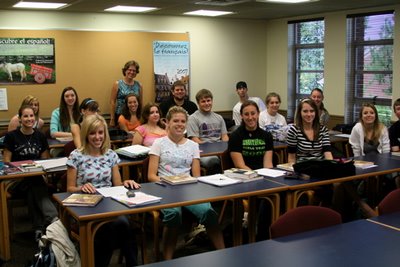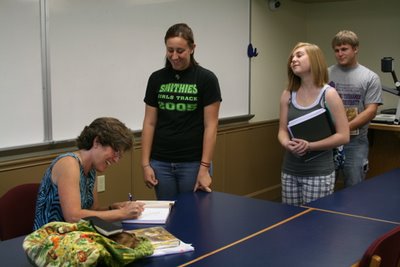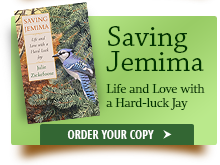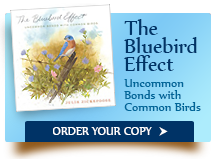 photo by David Fitzsimmons
photo by David FitzsimmonsI spent yesterday at Ashland University of Ohio, where English professor and gifted photographer David Fitzsimmons had invited me to come up and speak. David became aware of my work when he heard the commentary, "OK 1902" (about a dying beech tree on our land), on NPR last winter. As a naturalist, conservationist and awesome photographer (click the link!) as well as an English professor, he connected with the commentary and did a little digging around on the Web. That led him to Letters from Eden, which he decided to use as a text in his composition classes at Ashland University. Gaa-aaw-leee.
So I walk into the morning classroom with 16 adorable smart thoughtful students yesterday and there's one of my sentences up on the board with circles and arrows around it. Another Gomer Pyle moment. We settled down for a Q and A session. I was blown away by the questions the students asked. Several of them cut right to the emotional core of the book and we were off. A high school student who is taking college courses asked the most penetrating question of the day. She's the tiny blonde in the Superman T-shirt, front left row. "You are so passionate about nature and writing and art, and so much of your creative work seems to be done alone. Does this ever impact or hurt your personal relationships?"
Give me a second here. I was really expecting something more along the lines of, "How long did it take you to write the book?"
From there, we got into the issue of how one preserves time and mental space for creative pursuits, and I had a quote from Tillie Olsen ready. I've excerpted this from The Writer's Almanac, which sends me meaty things to think about every day. Tillie was 48 when her short story won the O. Henry Award. She was 49 when her first book came out. We have a little common ground...
It's the birthday of American novelist Tillie Olsen, born Tillie Lerner, in Omaha, Nebraska (1913). A young radical, she started work on a novel about the struggles of the working class, but put it aside when she was raising her children. Her short story, "Tell Me a Riddle," won the O. Henry Award for the best American short story in 1961, and became the title story of her first published book (1962). In Silences (1979), she wrote about the conflict between motherhood and writing. She wrote: "Children need you now ... The very fact that these are real needs, that you feel them as your own, that there is no one else responsible for these needs, gives them primacy. It is distraction, not meditation, that becomes habitual; interruption, not continuity; ... Unused capacities atrophy, cease to be."
It was so good to share, and as a published writer make real for the students, that struggle that all artists and writers and creative people fight each and every day--to push aside that which is unnecessary and make room for that which is vital to their spiritual health. I told the questioner that if I let myself, I'd do nothing but wipe counters all day, that it would be easy to let laundry, lawn care and kid-taxiing rule. That sometimes it does, for days or weeks at a time. And that every creative spirit has this conflict, and must find his or her own answer to how to balance the things that must be done with the more spiritual and fulfilling things that really should rule the day. I told the class about sitting at basketball games and practices with my laptop, typing madly, thinking, writing...cheering Phoebe on, in an absent-minded way. Knowing that it was a compromise all around, hoping that Phoebe and Liam understand and see that it's a way for me to strike some kind of balance, hoping that they learn from it how to keep their creative cores burning bright. (To my left, Liam is drawing a cityscape, with night club and coffey shop, peopled with penguins, ghosts and Halloween pumpkins. I think it's working.)
It is an honor that David Fitzsimmons chose Letters from Eden as a textbook for his composition classes. Thank you, David, and thank you for bringing me to Ashland. It was nice to sign every student's book, to meet each one and shake their hands and connect with them. Some of them had me sign it to their mothers, or grandmothers, because they would love the book.
 photo by David Fitzsimmons
photo by David FitzsimmonsMany had removed the dustcover to keep it unbent. I loved hearing that they like the book and are enjoying dissecting it for composition and style. But the fulfilling thing for me was to show them that an ordinary, sweaty human being who gets stuck behind trucks and is 20 minutes late to class, who trips over strewn toys and cobbles together suboptimal meals and never catches up with housework, who tries to do too many things and screws up and falls asleep at the wheel and sometimes gets utterly lost, also manages to squeeze out a book. I want them to know that it's in their grasp to do all these things--to do a lot of things badly, and to do one or two things well. Putting out a product should be part of every creative person's life. It's their duty, in a way, and also a reward. And the thrashing about and clawing for creative freedom and the mental space to use it well is part of the cost. Nobody has the answer as to how best to go about keeping the creative flame alive. How to remain a giving human being, a member of family and society, while still answering the call to be wild and introspective and silent and alone. We're all just blundering, no one more than I. That's what I hope they took home, that and the spirit to keep trying.
Here's Louise Erdrich.
Advice to Myself
Leave the dishes.
Let the celery rot in the bottom drawer of the refrigerator
and an earthen scum harden on the kitchen floor.
Leave the black crumbs in the bottom of the toaster.
Throw the cracked bowl out and don't patch the cup.
Don't patch anything. Don't mend. Buy safety pins.
Don't even sew on a button.
Let the wind have its way, then the earth
that invades as dust and then the dead
foaming up in gray rolls underneath the couch.
Talk to them. Tell them they are welcome.
Don't keep all the pieces of the puzzles
or the doll's tiny shoes in pairs, don't worry
who uses whose toothbrush or if anything
matches, at all.
Except one word to another. Or a thought.
Pursue the authentic-decide first
what is authentic,
then go after it with all your heart.
Your heart, that place
you don't even think of cleaning out.
That closet stuffed with savage mementos.
Don't sort the paper clips from screws from saved baby teeth
or worry if we're all eating cereal for dinner
again. Don't answer the telephone, ever,
or weep over anything at all that breaks.
Pink molds will grow within those sealed cartons
in the refrigerator. Accept new forms of life
and talk to the dead
who drift in though the screened windows, who collect
patiently on the tops of food jars and books.
Recycle the mail, don't read it, don't read anything
except what destroys
the insulation between yourself and your experience
or what pulls down or what strikes at or what shatters
this ruse you call necessity.






0 comments:
Post a Comment